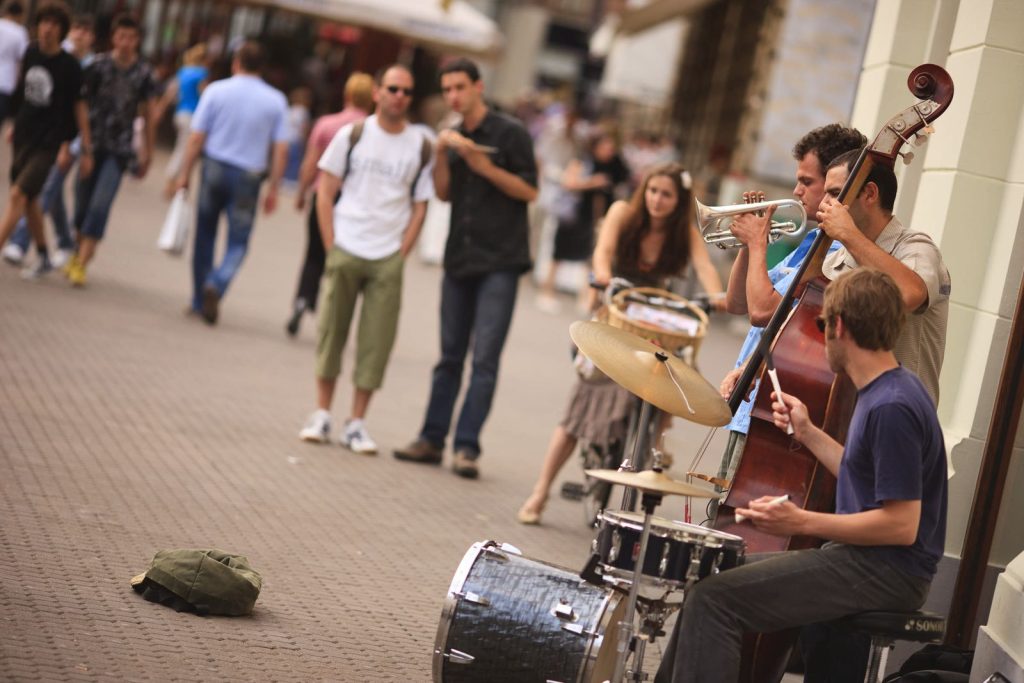As Novac/Zlatko Simic writes on the 4th of July, 2020, Milan Majerovic-Stilinovic, head of communications at HDS ZAMP, spoke to Jutarnji list about the coronafund for musicians.
Judging by the performances of musicians, the coronavirus pandemic has brought this industry to its knees. Both the known and the unknown have their respective existential worries. What does ZAMP’s data on revenue decline from March to July say?
The figures aren’t good, because they reflect the situation in which the entire music industry finds itself both here in Croatia and across the world: the total revenues of HDS ZAMP from all sources already fell by 30 percent in March this year when compared to March last year. April was even worse, with the absence of music events and the absence of payment for music licenses for most business users, the drop in revenue compared to April 2019 was as much as 72 percent. During June, the situation improved, but it’s still impossible to be optimistic.
But radio stations and television channels still see the performances of Croatian artists. Where are the biggest losses?
They refer to those users who didn’t work during the lockdown and didn’t even receive any music license bills. Along with the cafes, clubs, restaurants and hotels, the biggest losses come from the concert industry. This year there are no big summer festivals, concerts in arenas, there are almost no city events and there aren’t really even any weddings or similar smaller events… Of course, it isn’t only the songwriters who are affected, but also the whole chain, from the performers, concert organisers and promoters, lighting technicians… Everyone’s hands are tied because of this situation until further notice.
What measures have you taken to assist your members in receiving payment from the three aid packages?
The Croatian Society of Composers paid its members a total of 800,000 kuna in the form of aid from the Solidarity Fund, which otherwise, on an annual basis, amounts to 50,000 kuna. This speaks volumes about the seriousness with which the HDS approached the crisis: this amount was distributed to a total of 90 regular and associate members, ie, those most affected by the coronavirus crisis, as well as those who suffered damage during the Zagreb earthquake.
The public was quite appalled by some of the names asking for help. By what criteria were the most vulnerable members selected?
First of all, regular members of the society were helped, all 36 of them, who suffered significant losses or damage during the earthquake due to the inability to conduct their business, which they proved when applying for the tender with records, personal statements, etc. 54 associate members of the society, in accordance with their asset and family status, also received help from us. HDS has only seriously considered applications from people who see music authorship as an important source of their income in life, not just an occasional occupation.
Now concerts and summer tours are being postponed again, and even in the campaign it wasn’t possible to sing. Bands and singers who make their living from concerts are in the most difficult position. How else can ZAMP help them?
The real losses will be known in autumn when many, including musicians, will feel a decline in their income. HDS ZAMP is preparing a special ”coronafund” for this period, and is actively working on the monetisation of online content to monitor the transition from real stages to virtual ones. We’re monitoring all funds and sources of help for creatives, so we’re inform our members about them, and we’re also helping out legally.
A small number of songwriters live well on royalties. Did any of these famous names remember their colleagues who sang their songs and set up a special aid fund for them out of solidarity?
The performers were taken care of quickly and correctly by their umbrella association, the Croatian Music Union, through its funds and tenders.
You’ve been in this industry for years, how do you explain that after so many concerts, sold records and performances in the diaspora and at weddings, many don’t even have any money in their socks after a couple of months?
That’s nothing new, just like other industries, some musicians are skilled entrepreneurs who will make ten kuna from one kuna tomorrow, and some spend everything on the way out of the bar where they earned it. In recent years, the situation has been very favourable for most musicians, various types and forms of music have been used more and more, tourism has grown, and with it, the entertainment industry has too. No one even thought that such a tectonic disturbance could possibly occur.
But I read on your website that 23 songs are submitted daily, and the activity during the coronavirus pandemic increased by 45 percent when compared to last year. What does all that mean?
This means that most of them still used isolation creatively, either for bursts of inspiration or for arranging and finishing the songs that were sitting in the drawer. I hope that this will be one of the positive aspects of this situation and that they will satisfy the artistic needs of the audience, but also the material needs of their authors, once the music business starts up again in full force.
What’s the situation in the countries around us, including in the EU?
The situation in Croatia is still significantly better than it is in most other countries, especially in those in our immediate region. For example, despite all of the challenges of doing business in the middle of a pandemic, HDS ZAMP successfully realised as many as two royalty calculations in April and June. These amounts have helped many authors to overcome the crisis period more easily, although we, like other countries and societies in the region, are facing a difficult winter period and a significant drop in revenue, perhaps 50 million kuna in total.
As a longtime journalist, what do you miss about your old job? I’d bet you’re making a documentary about the Croatian music industry?
You’d lose that bet, but you’re not far wrong – I’ve been hiking a lot in recent years and spending time in nature. So, just today my first book ”What I Learned on the Mountain” came out. It contains 50 short ”stories in progress”. In musical terms, I don’t know if the book will be a hit, I’d be happy for it to become and remain a slow-burning evergreen.
For more on the coronafund and life during the coronavirus pandemic in Croatia, follow our lifestyle page.








